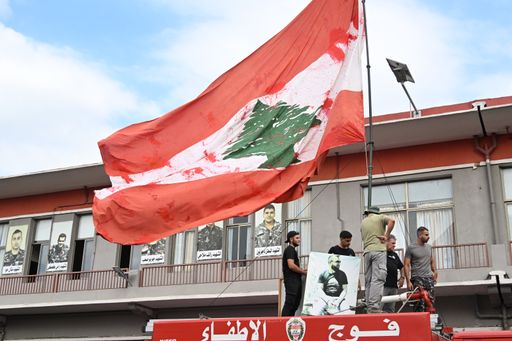The Lebanese Cabinet has approved the goals outlined in a US proposal aimed at “solidifying a ceasefire agreement with Israel”, Information Minister Paul Morcos said.
Speaking at a press conference on Thursday following a Cabinet session held at the presidential palace in Baabda, east of Beirut, Morcos said the government backed the objectives listed in the preamble of US envoy Tom Barrack’s proposal to maintain the cessation of hostilities.
"We approved ending the armed presence across all Lebanese territory, including Hezbollah, and deploying the Lebanese army to border areas," Morcos stated.
He added that the government's decisions are intended to "restore stability, uphold state authority, and launch reconstruction efforts."
The Lebanese Cabinet reconvened to continue discussions on disarming Hezbollah.
The talks revolved around a US proposal delivered by envoy Tom Barrack comprising four phases, Reuters reported.
Phase 1 requires Lebanon to commit to full disarmament by December 31, 2025.
In phase 2, Lebanon must begin implementing the plan within 60 days, while Israel starts its withdrawal and releases Lebanese prisoners.
Phase 3 sees further Israeli withdrawal and funding for the reconstruction of Lebanon.
By phase 4, Hezbollah’s remaining heavy weapons must be dismantled.

'A grave sin'
Hezbollah, however, has firmly rejected the initiative, calling it a “grave sin” and warning of serious political consequences.
In a statement, Hezbollah said it considers the government’s move “nonexistent” and vowed to resist any decision that would strip the country of its “resistance against Israeli aggression”.
Secretary-General Naim Qassem said his group would not accept any disarmament timetable while Israel continues to occupy Lebanese territory and violate the ceasefire.
“This is a national security issue, not just an internal matter. We are ready to discuss a defence strategy, but not under the pressure of aggression,” he said.
US officials reportedly pressed Beirut to demonstrate a serious commitment to the ceasefire terms agreed in November, which called for limiting weapons to official security agencies.
Israeli attacks on Lebanon
Cross-border warfare between Israel and Hezbollah began in October 2023 and escalated into a full-scale war in September 2024.
As many as 4,000 people, including Hezbollah chief Hasan Nasrallah, were killed, and around 17,000 others were wounded in Israeli attacks.
A ceasefire was reached in November, but Israeli forces have conducted near-daily attacks in southern Lebanon.
Under the truce, Israel was supposed to fully withdraw from southern Lebanon by January 26, but the deadline was extended to February 18 after Tel Aviv refused to comply.
Israel still maintains a military presence at five border outposts.




















